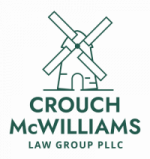Whether it’s for a closing or a land use issue, there are a few documents we like to have when you call our office. Regardless of the service you need, if it’s related to a property (and in our practice, it almost always is), we will want to review the following 3 documents:
- The most recent survey of the property
- The most recent certificate of occupancy of the property
- The property card or building card
These documents are the typical starting point of our analysis of any closing or land use issue. For the survey, if you haven’t had one done yourself, the municipality’s building department (i.e. the Town or Village building department) should have one on file.
The municipality’s building department will likewise have the certificate of occupancy and property card as well. The certificate of occupancy states what is currently permitted on the property from a use and structural standpoint. Its issue date shows the last time the municipality inspected and approved the structures on the property. The property card shows the history of the property from the municipality’s point of view. It will show any board approvals, building permits, certificates of occupancy, violations, and other related records maintained by the municipality.
If you don’t have these documents with you when you call us, we can request them from the municipality. However, it will take a few days to receive them, and our advice could be limited until we’ve had a chance to review.
You can request the most recent survey, certificate of occupancy, and property card from each municipality and they will provide for free (request the electronic version only) through the Freedom of Information Act. Here is the link to request for East Hampton Town, East Hampton Village, Sag Harbor Village, and Southampton Town.
If you call us and have those 3 documents on hand, we can have a much more thorough conversation.
PLEASE NOTE that this article is not intended to create an attorney-client relationship and the information within does not substitute for a consultation with an attorney.
Copyright 2022 Crouch McWilliams Law Group, PLLC



Leave A Comment